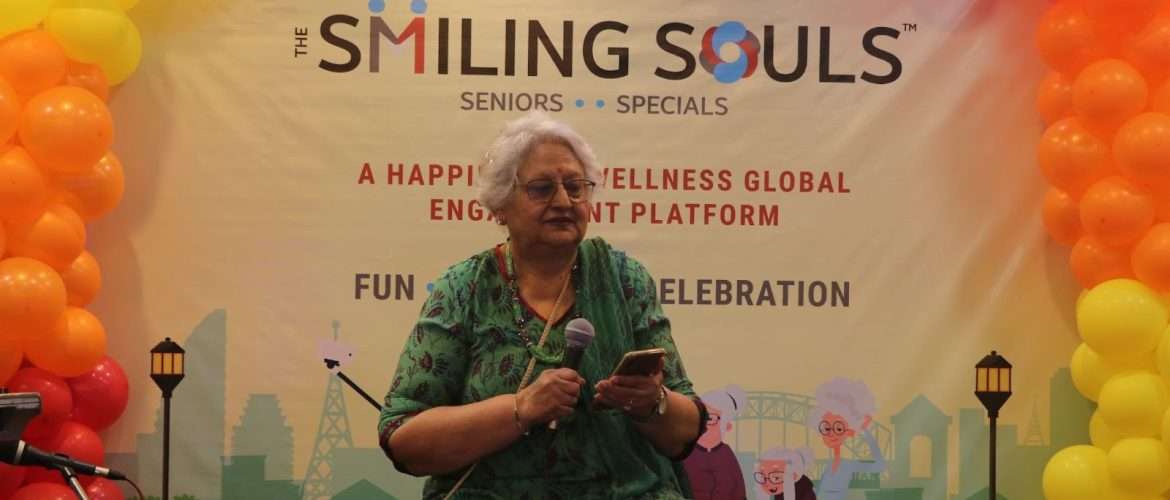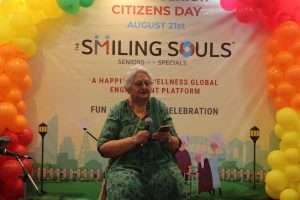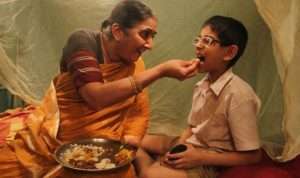Blog
“The Need To Tell” – By Shraddha Nigavekar, Ph.D.
- September 16, 2023
- Posted by: T J
- Category: Seniors: Storytelling

Storytelling is a fundamental mode of human communication. It is an integral part of our social fabric that transmits cultural and individual traditions, values, and moral codes. It can take many forms – personal anecdotes, historical tales, fantasy stories, and mythical legends too.

Storytelling is intrinsically human in nature, and since ancient times it has been a way of sharing, emoting, expressing, connecting, caring, and passing on hard-earned knowledge and experience across generations. It is so common across cultures that we are often unaware it is happening! Research has proven that stories benefit the teller and the listener physiologically and psychologically.
Of the myriad types of stories that can be woven, I am particularly fascinated by the human life story or personal narrative. Dr. Robert Atkinson, an extensively-published author, and developmental psychologist, defines a ‘life story’ as the story a person chooses to tell about the life he/she has lived and what is remembered [1]. These life stories are nuggets of one’s life that one chooses to remember and feel are significant enough to narrate to others.
My dear, sweet, 85-year-old mother, in fact, made me curious about the life stories our elders tell us and their significance. There are some personal narratives my mother loves to say to any family member willing to listen. And over the years, as she aged, she has whittled them down to a chosen dozen or so that she reverts to telling us over and over again. Each time she narrates each of these stories with the same punch lines and yet with undiminished gusto and complete enthusiasm. Each time, she visibly brightens, and her spirits are on a happily elevated level. So what makes her want to tell the same personal story repeatedly? How does this storytelling directly or indirectly benefit her as a human? Why has it become more valuable as she ages?
And here’s what I found…There is always a pivotal decisive moment, a life-changing event, a critical lesson, or an in-depth observation underlying each of these stories she wants to impart. When my mother retells the same stories, it is not forgetfulness; it is, in fact, an all-out effort to share what is important to her. These are the stories she feels we need to know and remember.

Storytelling by the elderly has multiple positive effects. When a life story is remembered and shared, the body has a physiological shift. This results in better self-esteem, an elevated mood, and a sense of well-being. When a senior actively relates a life story, it strengthens feelings of control over one’s life, and a sense of mastery, if you will. It helps older adults find meaning and purpose in their life and nourishes a sense of identity and validation. It also significantly reduces feelings of loneliness by forming a social connection and establishing an easy communication pathway between the teller and the listener [2].
These human stories may be imprecise, unscientific, and sometimes a somewhat exaggerated extension of thought, but they are instrumental in establishing, organizing, and integrating neural connections in the brain. Simply put, telling a story by expressing thoughts and emotions and narrating conflicts and resolutions helps keep one’s ageing brain active and healthy [3,4]. Actively engaging in storytelling is very beneficial. It can lead to destressing, improved memory, deeper social connections, and increased vitality in older adults [5, 6].
Of course, my mother never consciously thinks of all these positives when she narrates her stories! But by default, just her act of telling and our active listening is a validation of her life story, and we all benefit in many ways. There is a profound sense of connectedness, satisfaction, intergenerational compassion, and the creation of a strong legacy of family memories. As a professional storyteller, I have become intimately aware of the overarching benefits of stories over time. But thanks to my mother, the immense merit of storytelling for and particularly by our seniors has been driven home. The need for our seniors to tell is accurate, and the world is a better place because of it!
By Shraddha Nigavekar
Specialist – The Smiling Souls
References
1. Li, C. et al, (2020) Facilitating intergenerational storytelling for older adults in the nursing
home: A case study. Journal of Ambient Intelligence and Smart Environments, 12 (2):158-177.
2. Driessnack, M. (2017) “Who are you from?”: The importance of family stories, Journal of
Family Nursing. 23: 434-449.
3. Stein, D.J. and Young, J.E. Cognitive Science and Clinical Disorders, Academic Press,
(1992)
4. Cozolino, L. (2013) The Social Neuroscience of Education: Optimizing Attachment and
Learning in the Classroom (The Norton Series on the Social Neuroscience of Education), WW Norton & Company, (2013).
5. Sierpina, M., & Cole, T. R. (2004). Stimulating creativity in all elders: A continuum of
interventions. Care Management Journals, 5(3), 175-182).
6. https://theconversation.com/storytelling-allows-elders-to-transfer-values-and-meaning-to-
younger-generations-197766
7. Mager, Barbara J. R. and Stevens, Lou Ann M. (2015). The Effects of Storytelling on
Happiness and Resilience in Older Adults. Sophia, the St. Catherine University repository website https://sophia.stkate.edu/ma_hhs/3
8. https://www.heraldextra.com/lifestyles/2022/jul/20/health-and-wellness-why-your-elderly-
relatives-storytelling-matters/
© Copyright 2023. All Rights Reserved Powered by Vygr Media.









